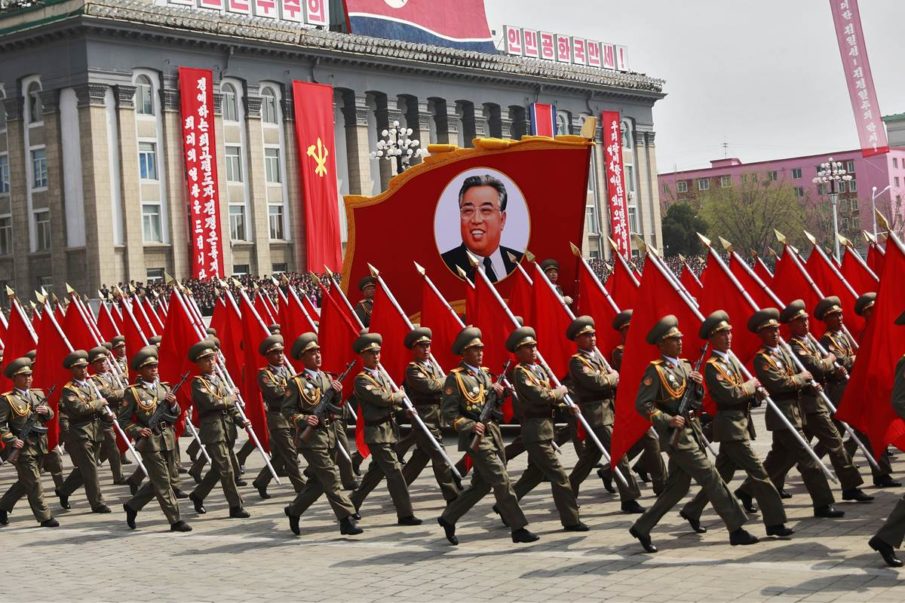U.S. Secretary of State Rex Tillerson increased pressure on North Korea’s largest and most powerful ally, China, on Monday, claiming that they could do more to help curb Kim Jong Un’s pursuit of nuclear weapons and the missile platforms necessary to deliver them to targets around the globe, but Russia’s warming rhetoric toward Kim may limit China’s influence.
North Korea has violated UN resolutions and international law in their effort to produce miniaturized nuclear warheads that can be mounted on ballistic missiles, as well as a fleet of missile platforms designed to travel at various ranges. Despite significant international efforts to dissuade Kim from pursuing these weapons, ballistic missile testing has continued unimpeded in North Korea since President Trump took office, though no atomic tests have occurred since last year.
“China and other regional partners should also step up their efforts to help solve this security situation, which threatens not just that region, but really presents a threat to the entire world,” Tillerson told reporters in Sydney after a meeting between the Australian and U.S. foreign and defense ministers.
“We desire productive relationships, but we cannot allow China to use its economic power to buy its way out of other problems, whether it’s militarizing islands in the South China Sea or failing to put appropriate pressure on North Korea,” he said.
China accounts for nearly 90% of North Korean trade, placing their government in the unique position of having significant leverage over Kim’s regime. Despite that, China has continued to claim that their influence over Kim shouldn’t be the primary method employed to discourage his nuclear pursuits. They have also accused the United States of provoking North Korea with its military presence, but have offered little else in terms of working toward a denuclearized peninsula beyond public statements.
China even blocked new sanctions to be imposed on North Korea by the United Nations on Friday, though the Security Council did vote unanimously to add 15 individuals and four entities linked to the North’s nuclear and missile programs to a U.N. sanctions blacklist.
“We’re working diplomatically, economically, we’re trying to exhaust all possible alternatives to avert this race for a nuclear weapon in violation of … the United Nations’ restrictions on North Korea’s activities,” American Secretary of Defense, James Mattis, told the press. “We want to stop this. We consider it urgent,” he added.
North Korea has turned down its violent and aggressive rhetoric in recent weeks, opting instead to convey themselves as the victim of U.S. aggression. Russia, who has also called for North Korea to stop developing nuclear weapons while simultaneously working to strengthen relations with Kim’s regime, has joined North Korea and China in the effort to shift the perception of this nuclear standoff to see as though it was brought about as a result of American meddling.
“They don’t want to isolate North Korea. They want to enable North Korea to be able to continue to conduct activities with the rest of the world,” James Brown, an associate professor at Temple University’s Tokyo campus said. “They’re against the North Korean nuclear program. … But the Russians also are more sympathetic toward North Korea.”
Russia’s current trade with North Korea tops out at approximately $130 million annually, which is negligible compared to China’s $6.6. billion, but it would appear Russia may be positioning themselves to absorb some of North Korea’s lost trade with China in the event the Chinese actually do increase the pressure on Kim to do away with his nuclear ambitions. If that’s the case, Russia’s financial pursuits would dramatically undermine the international effort to denuclearize the region, and would potentially come with significant political fallout. It also remains unclear as to whether or not the Russian economy could even sustain such an increase in trade with its nearby neighbor.
“If the Chinese really crack down, would the Russians be able to completely backfill? I’m not sure that they would,” Anthony Ruggiero, an analyst at the Foundation for Defense of Democracies, a Washington think tank, said.
Already have an account? Sign In
Two ways to continue to read this article.
Subscribe
$1.99
every 4 weeks
- Unlimited access to all articles
- Support independent journalism
- Ad-free reading experience
Subscribe Now
Recurring Monthly. Cancel Anytime.


COMMENTS